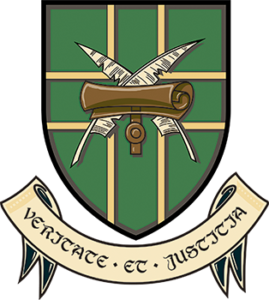There are three stages in the process of appointment as a Notary Public in Ireland.
First, the candidate notary must comply with the relevant provisions of the Notaries Public Education, Training and Examination Regulations 2007-2014 (‘the regulations’) (available on www.notarypublic.ie and on www.notaryinstitute.ie). In particular, candidate notaries must, at the date of application to sit the Faculty Examination (as set out in the regulations), be practising solicitors or barristers, have not less than five years post-qualification experience in the general practice of the law and at least two consecutive years of the general practice of law must be in the period immediately preceding the application to sit the Faculty Examination.
Second, the candidate notary must attend the Notarial Professional Course/Diploma in Notarial Law & Practice (Dip.Not.L.) at present extended over one academic year from October to May and be so certified.
This course is provided by the Institute of Notarial Studies (‘the Institute’), a division of the Faculty of Notaries Public in Ireland (‘the Faculty’). [The website for the Institute of Notarial Studies is at www.notaryinstitute.ie.]
Third, the candidate notary must be in ‘good standing’ with the Law Society or the Bar Council and produce a certificate to that effect.
It is envisaged that the course of study leading to the Faculty Examination/Diploma in Notarial Law and Practice will extend over two academic years – but not for the academic year October 2019 to May 2020.
As stated above, the Notarial Professional Course and the postgraduate Diploma in Notarial Law & Practice are aligned together, leading to the award of the postgraduate Diploma in Notarial Law & Practice – designated as Dip.Not.L. (F.N.P.I.). This course is provided by the Institute of Notarial Studies (‘the Institute’), a division of the Faculty of Notaries Public in Ireland (‘the Faculty’). [The website for the Institute of Notarial Studies is at www.notaryinstitute.ie.].
Currently, there are seven modules on the Notarial Professional Course/Diploma Course held on one afternoon a month over the academic year, October to May, at the Law Society of Ireland, Blackhall Place, Dublin 7, Ireland. The stipulated number of modules and their duration are under review. [See below for details of the modules.] Attendance at the modules is compulsory.
Having attended all the modules over the academic year, the candidate notary sits the Faculty Examination/ Diploma examination in May. If the candidate notary is successful, he or she moves to the third stage in the process of appointment as a Notary Public.
The third stage of the process of appointment as a Notary Public involves a formal petition to the Chief Justice of Ireland in open court on a Notice of Motion (to which the Faculty is a notice party as is the Law Society of Ireland). The Chief Justice decides on petitions for appointment and who should or should not be appointed. The admission criteria summarised here are without prejudice to any further directions which the Chief Justice and the Faculty may make from time to time.
Candidate notaries should consult the Rules of the Superior Courts, the Courts Service website, and Hall & O’Connor, The Notary of Ireland: Law and Practice (2018) about the formal petition. The Registrar of the Faculty, Mr David Walsh, info@notarypublic.ie will also provide a precedent Notice of Motion and Petition etc. upon request.
Barristers are not permitted by the Bar Council to practise as a notary from a desk in the Law Library. The Bar Council also requires barristers to keep fees earned as a barrister separate from notarial fees.
There may be other requirements which may prove to be an impediment in relation to appointment and the candidate notary should familiarise himself/herself with all the requirements to avoid disappointment.

